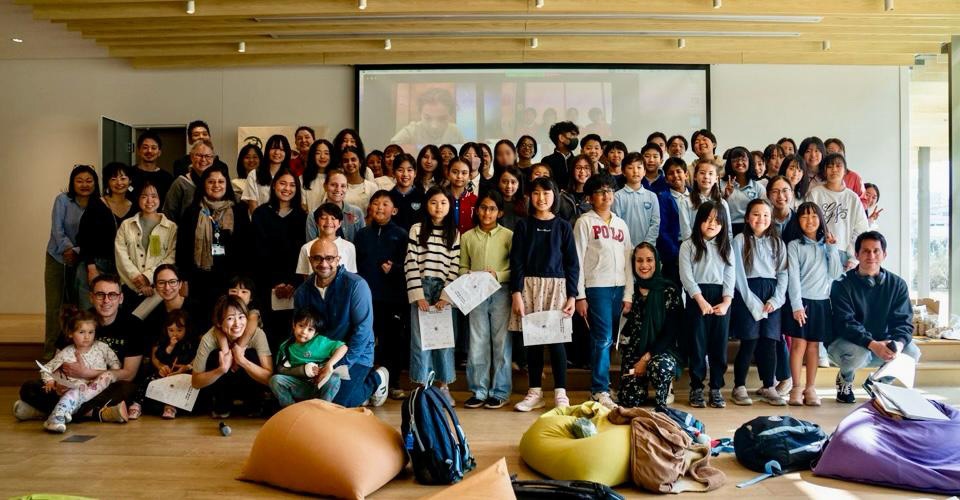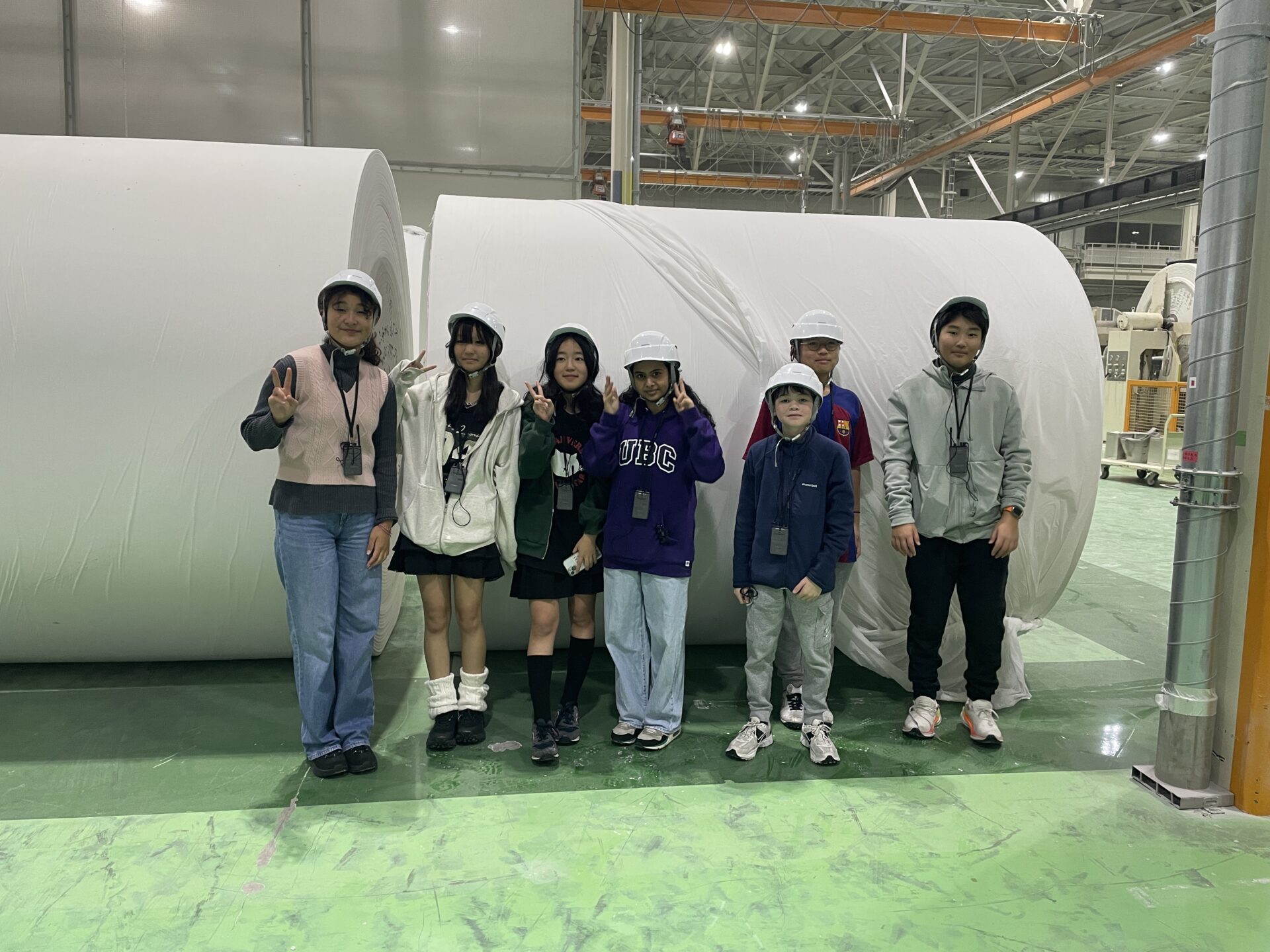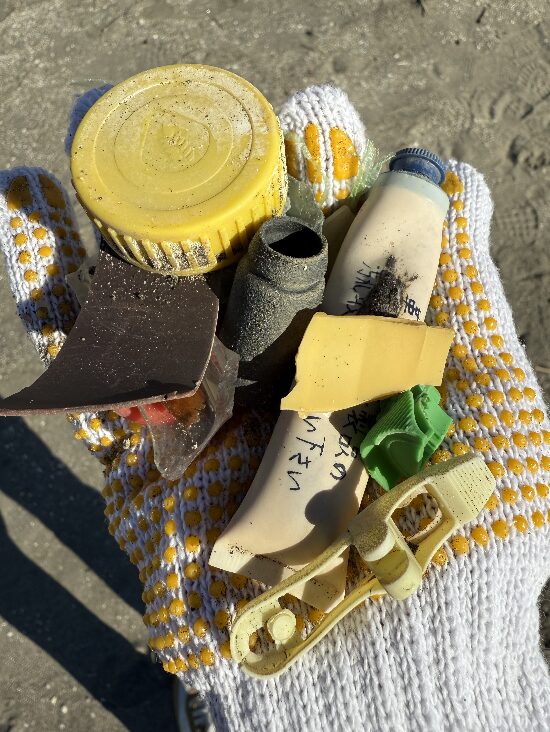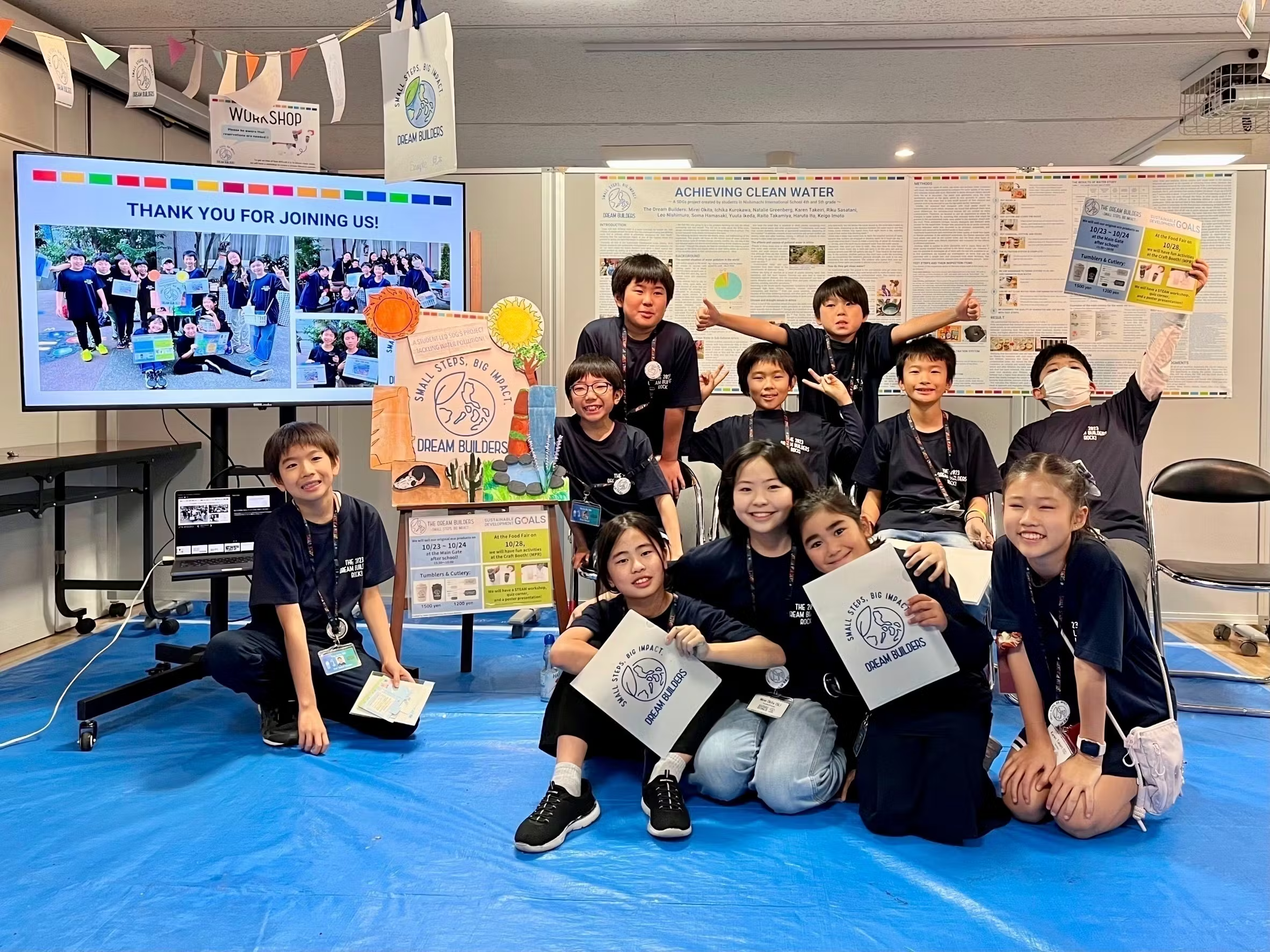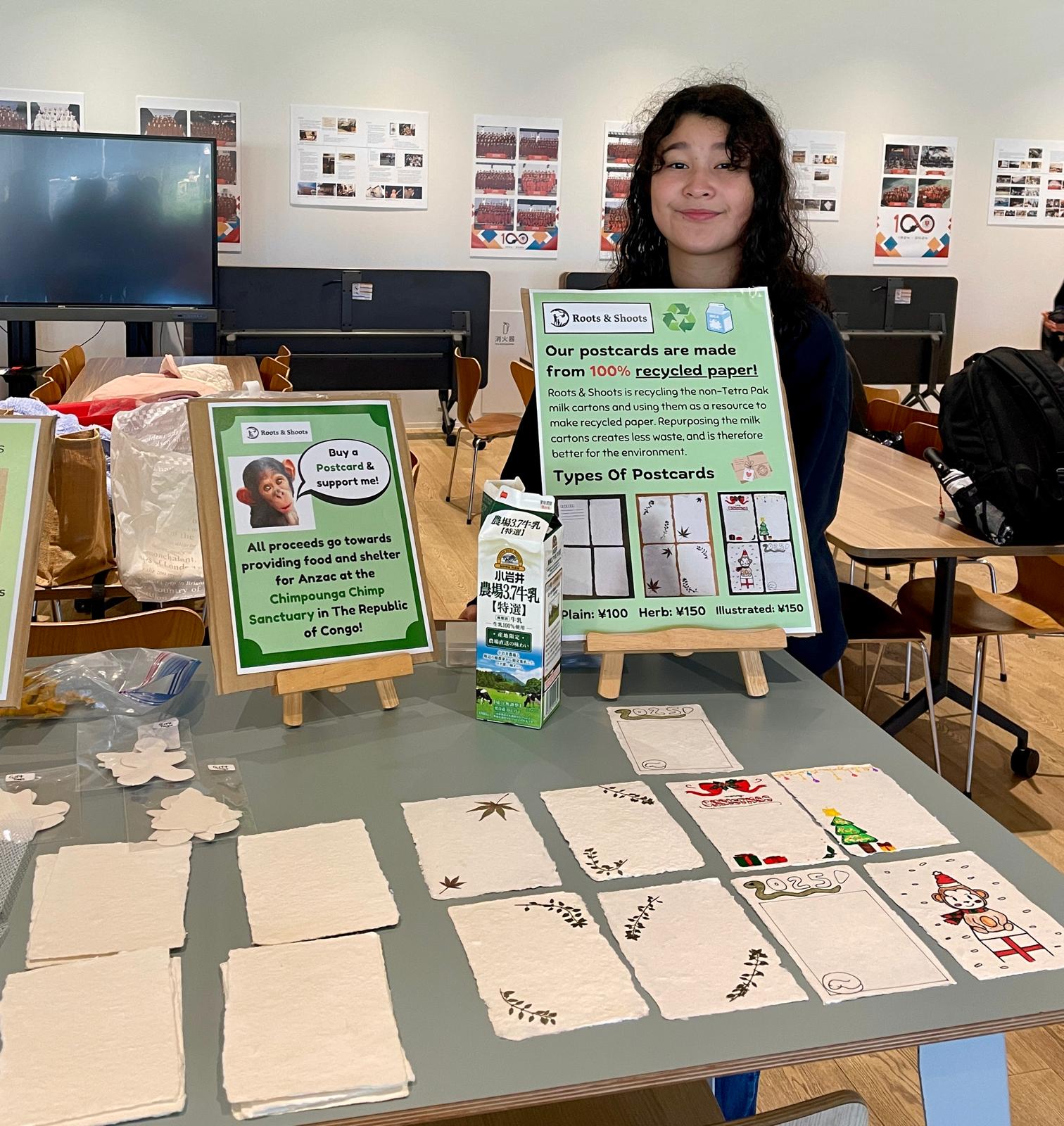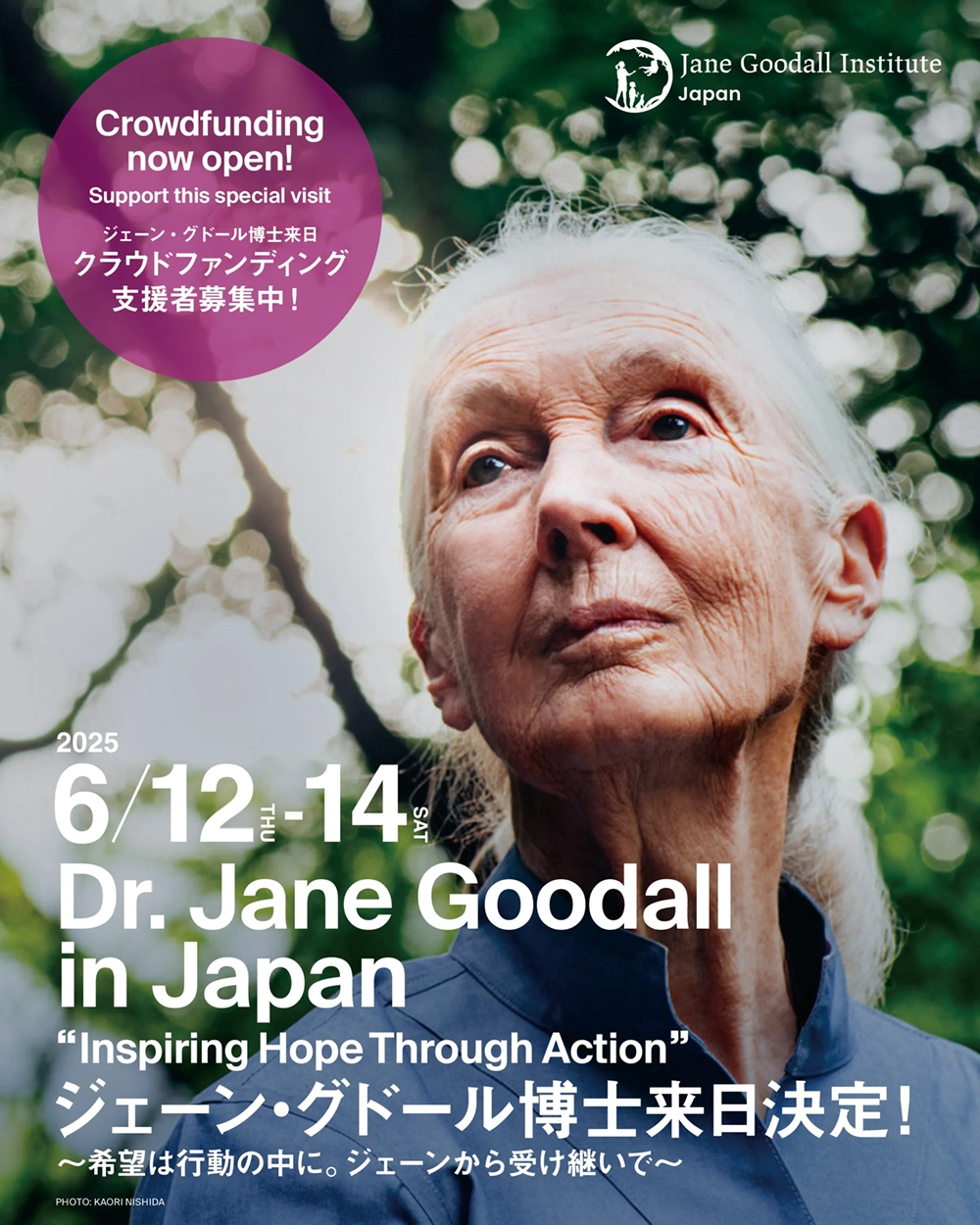ROOTS & SHOOTS
横浜インターナショナルスクールにテトラパック社が来校! Roots & Shootsの取り組みを視察されました。
Tetra Pak Global Team at Roots & Shoots YIS!
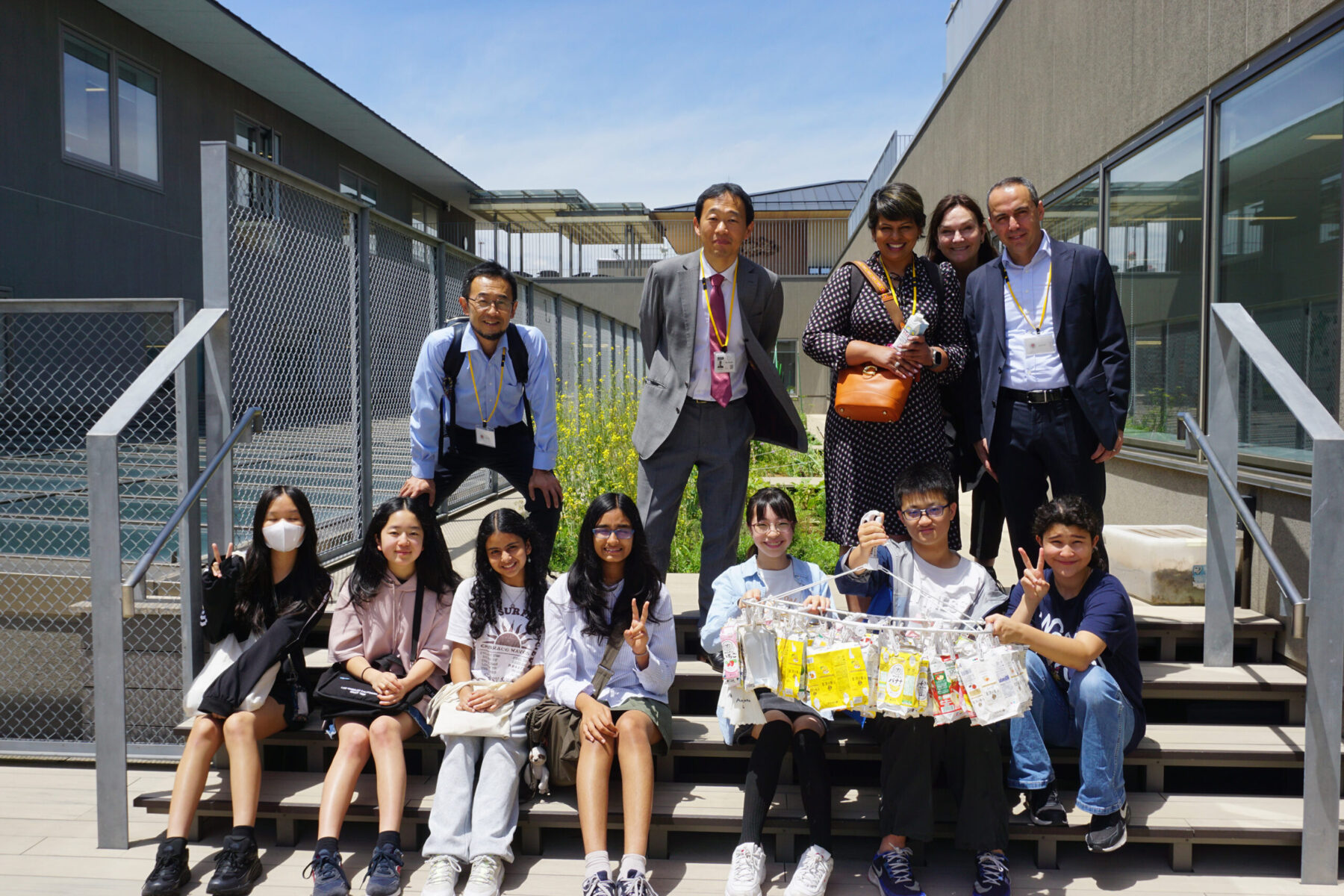
5月15日、横浜インターナショナルスクールにテトラパック社のコーポレートアフェアズを担当する副社長Eija Hietavuoさんらが来日しました。
横浜インターナショナルスクールのRoots & Shootsといえば、3年前から取り組んでいるテトラパックのリサイクル。日本のリサイクルやゴミ処理に関するインフラなどは世界でも高い技術を誇っています。しかし、まだ課題も多く、たとえばアルミ付き紙パックのリサイクルもその一つ。一部のスーパーマーケットでは、アルミ付き紙パックの収集などを行っているものの、自治体回収はまだ多くの場所で進んでおらず、紙ごみリサイクルではなく「燃えるゴミ」として回収されるケースがほとんど。リサイクルすることができれば、紙パックはトイレットペーパーやティッシュペーパーなどへと生まれ変わることができるにも関わらず、私たちは暮らしの中で資源を十分に生かすことができていません。
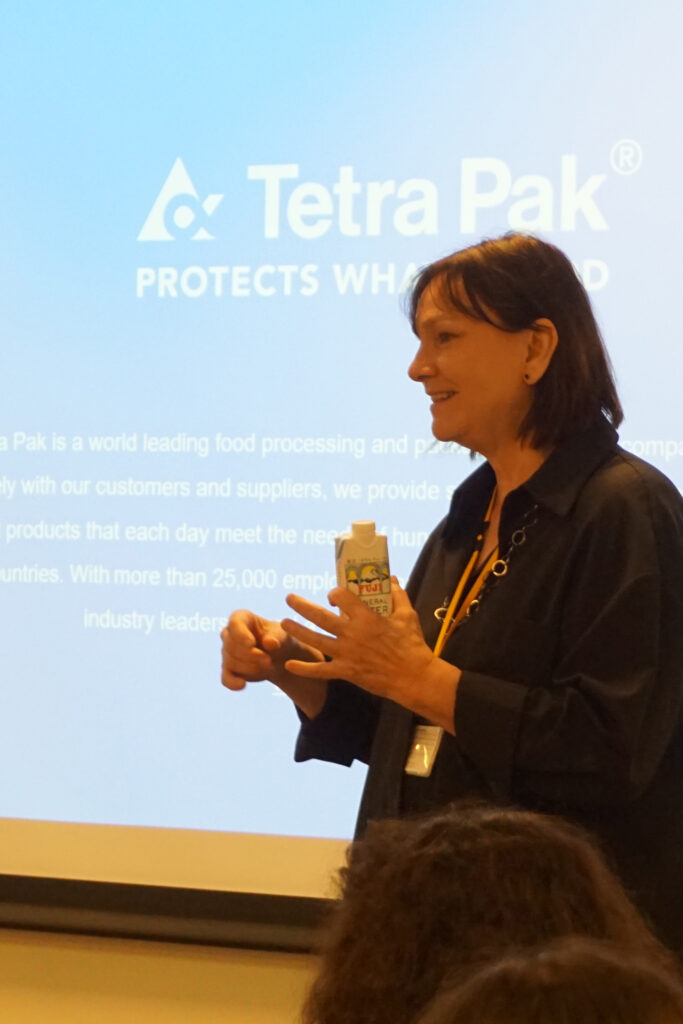
Eija Hietavuo, Global Head of Corporate Affairs of Tetra Pak
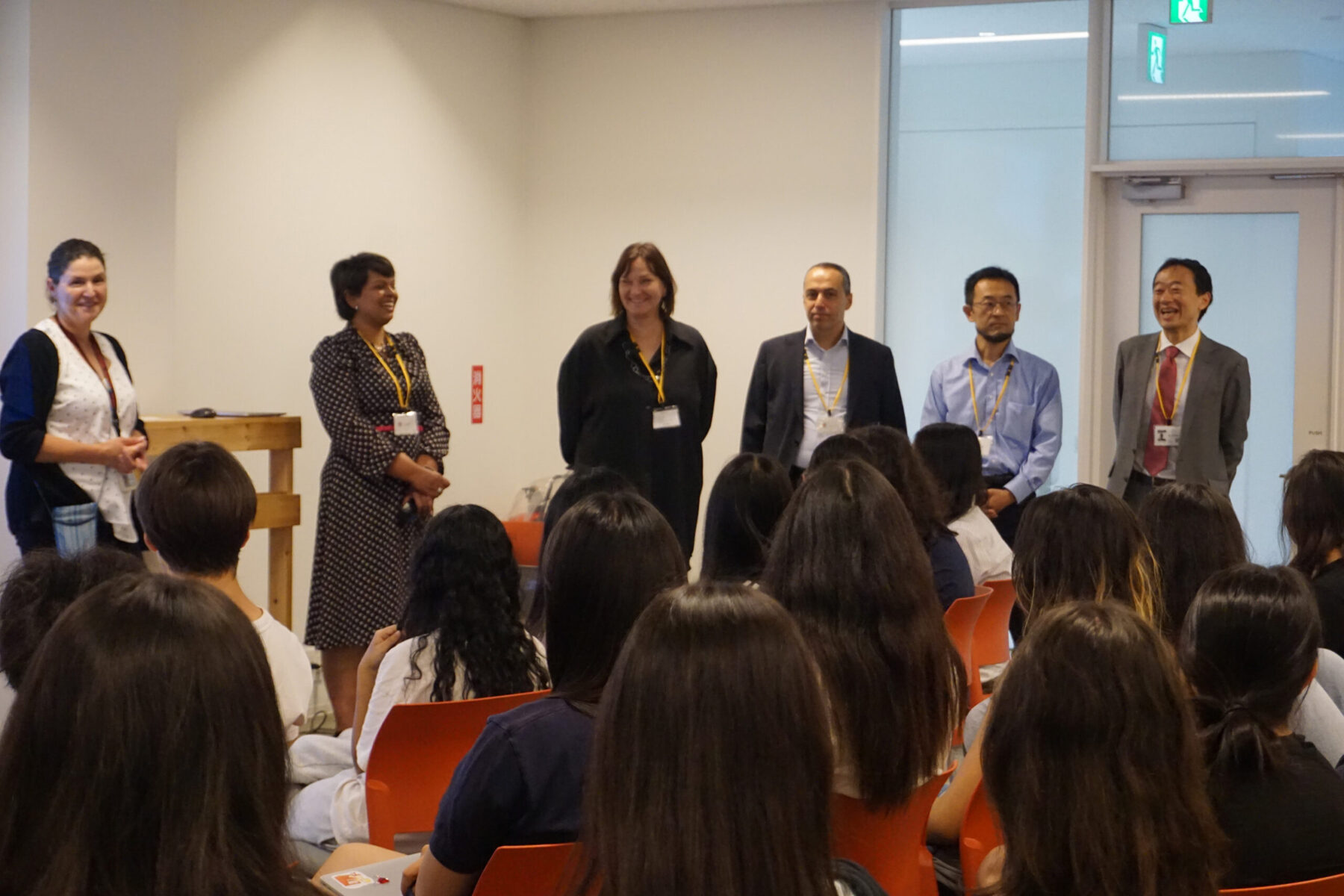
横浜インターナショナルスクールの所在地である横浜市も同じ課題を抱えており、カフェテリアでたくさんのアルミ付き紙パックが燃えるゴミとして捨てられているのをみたRoots & Shoots YISのメンバーは、リサイクルできないかを検証。そこで、テトラパックのベルマーク運動という専用の回収ボックスがあることを知り、校内にテトラパックマークのついた紙パック専用の回収ボックスを設置しました。皆が積極的にリサイクルに参加するよう目立つポスターを制作し回収しています。こうして、自然と学校全体の生徒たちが分別というアクションに参加する入り口にもなっています。
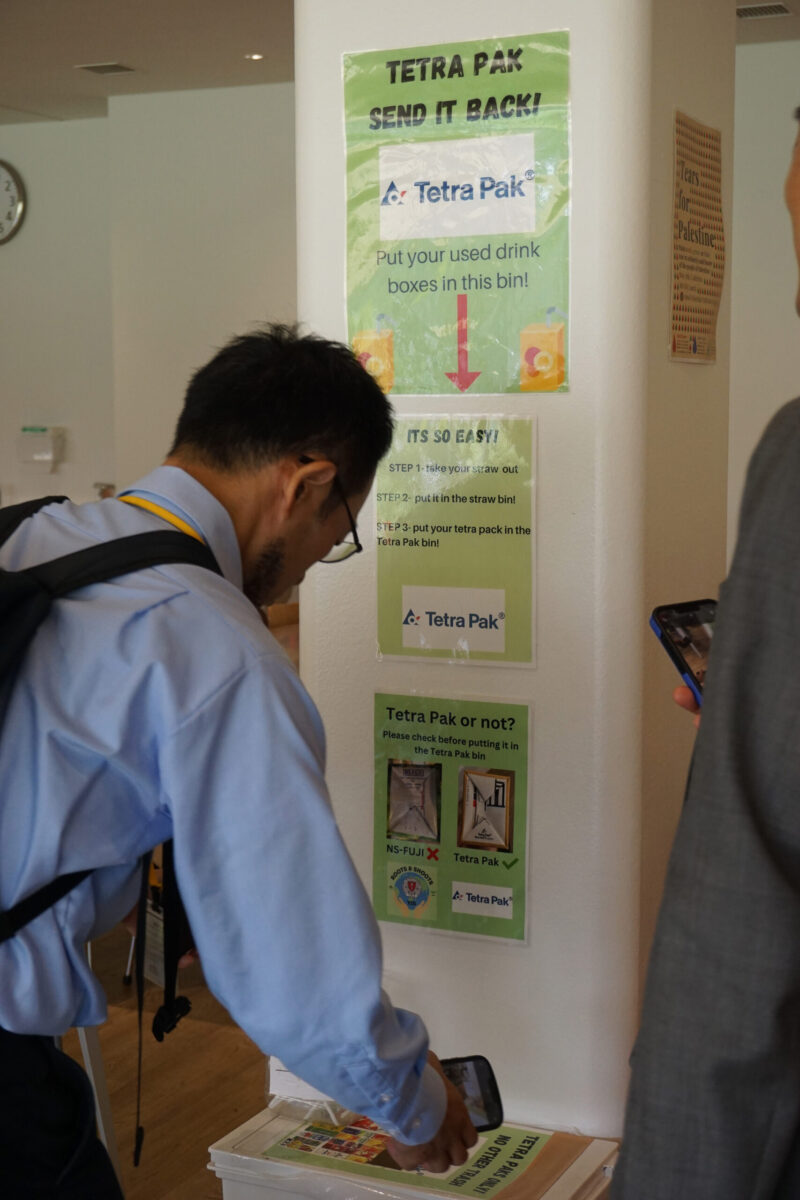
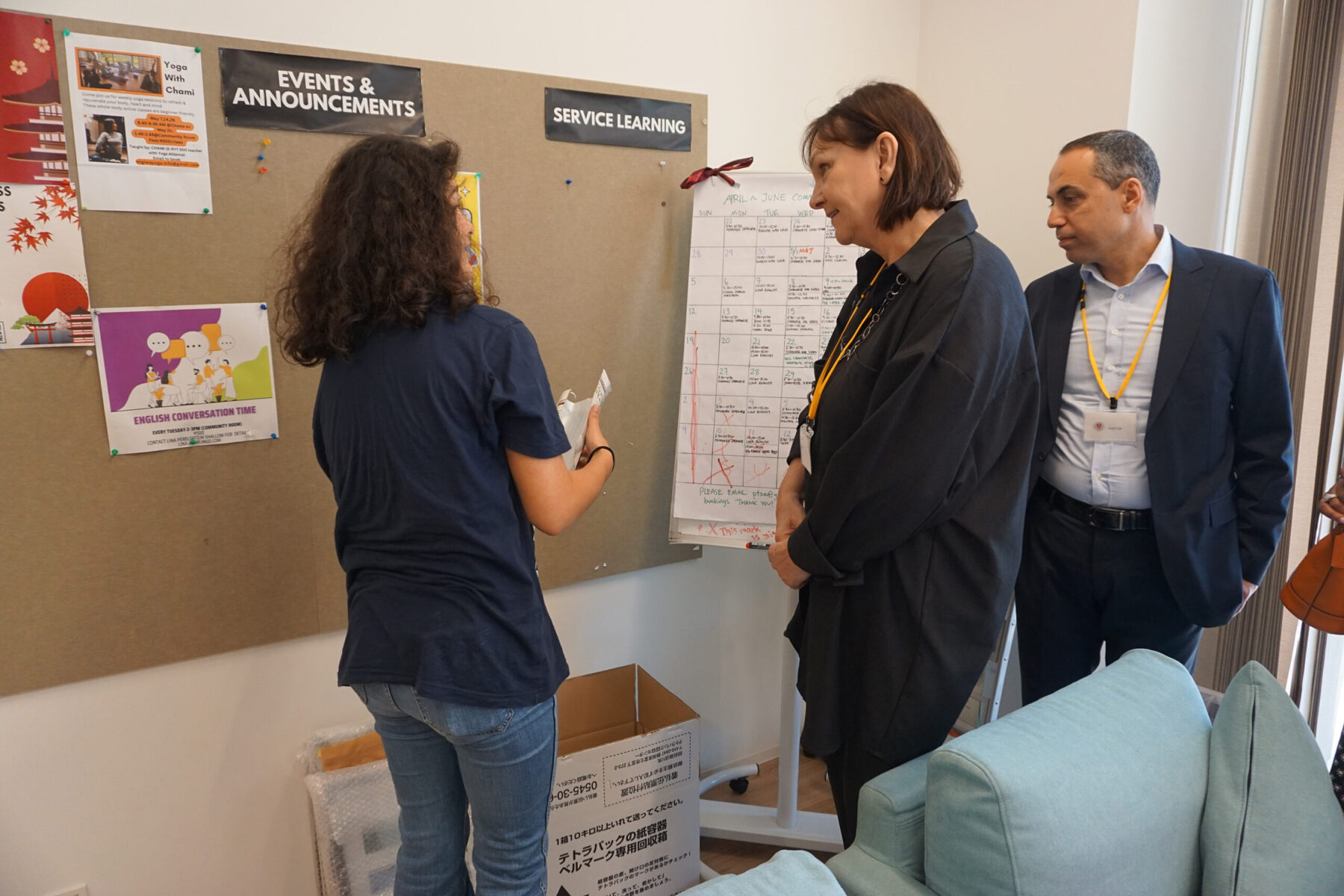
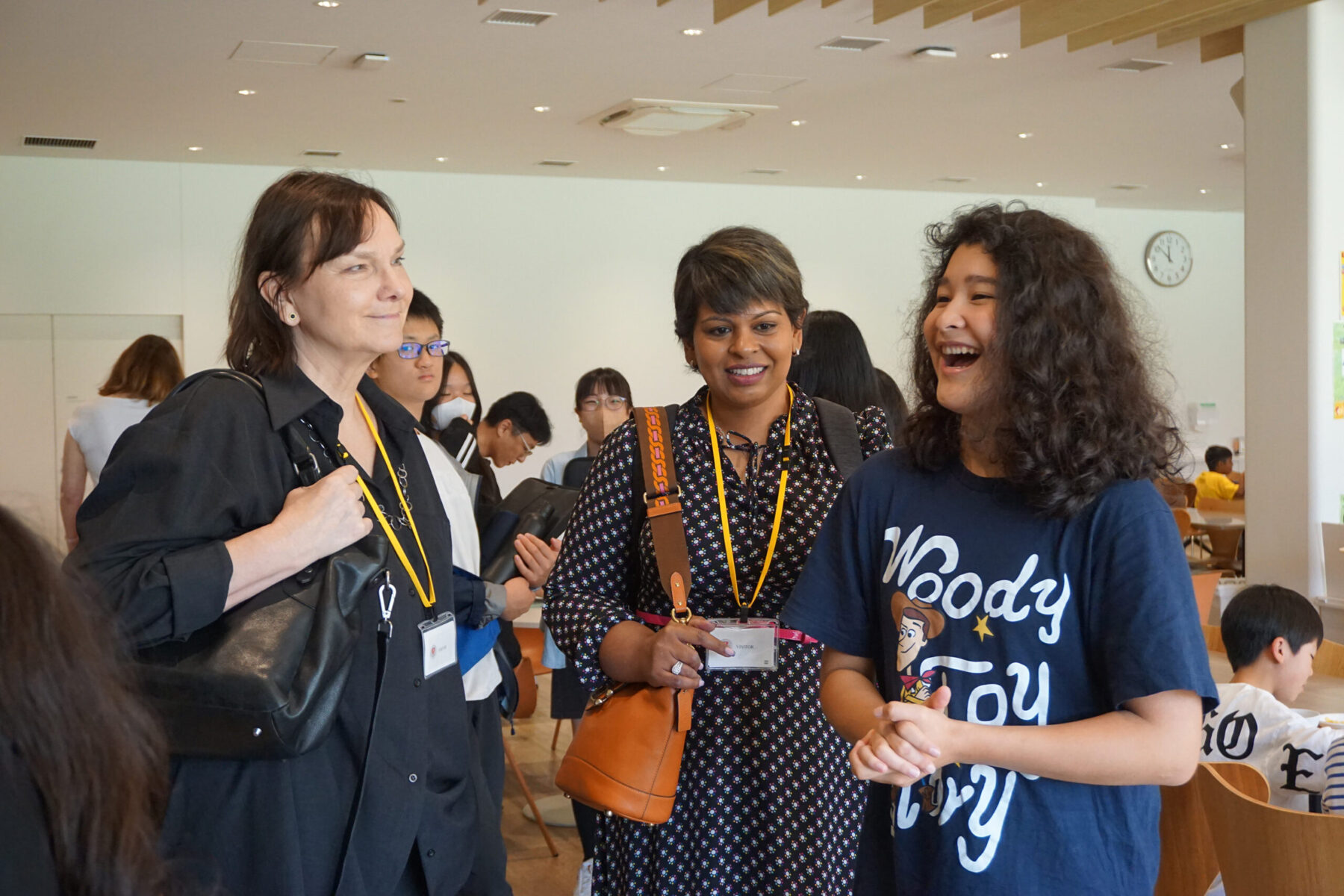
週に一度、集まったアルミ付き紙パックを一つひとつルーツ&シューツのメンバーが開封し、水を無駄にしないようにと学校の菜園で洗浄し、乾かしています。そして、専用の回収ボックスがいっぱいになったら直接リサイクル工場に送付しています。他にも先生や保護者などもアルミ付き紙パックを自宅から持ち込めるよう、校内のコミュニティルームなど数箇所にボックスを設置しています。
また、テトラパックを回収して送付することで、ベルマークの点数も貯まります(アルミ付き紙パック1kgにつきベルマーク40点、ベルマーク1点につき1円)。このポイントを地域のために有効活用すべく、YISのRoots & Shootsは児童養護施設を訪問し、ニーズを聞き出し、必要なものの購入費に当てて寄付しています。
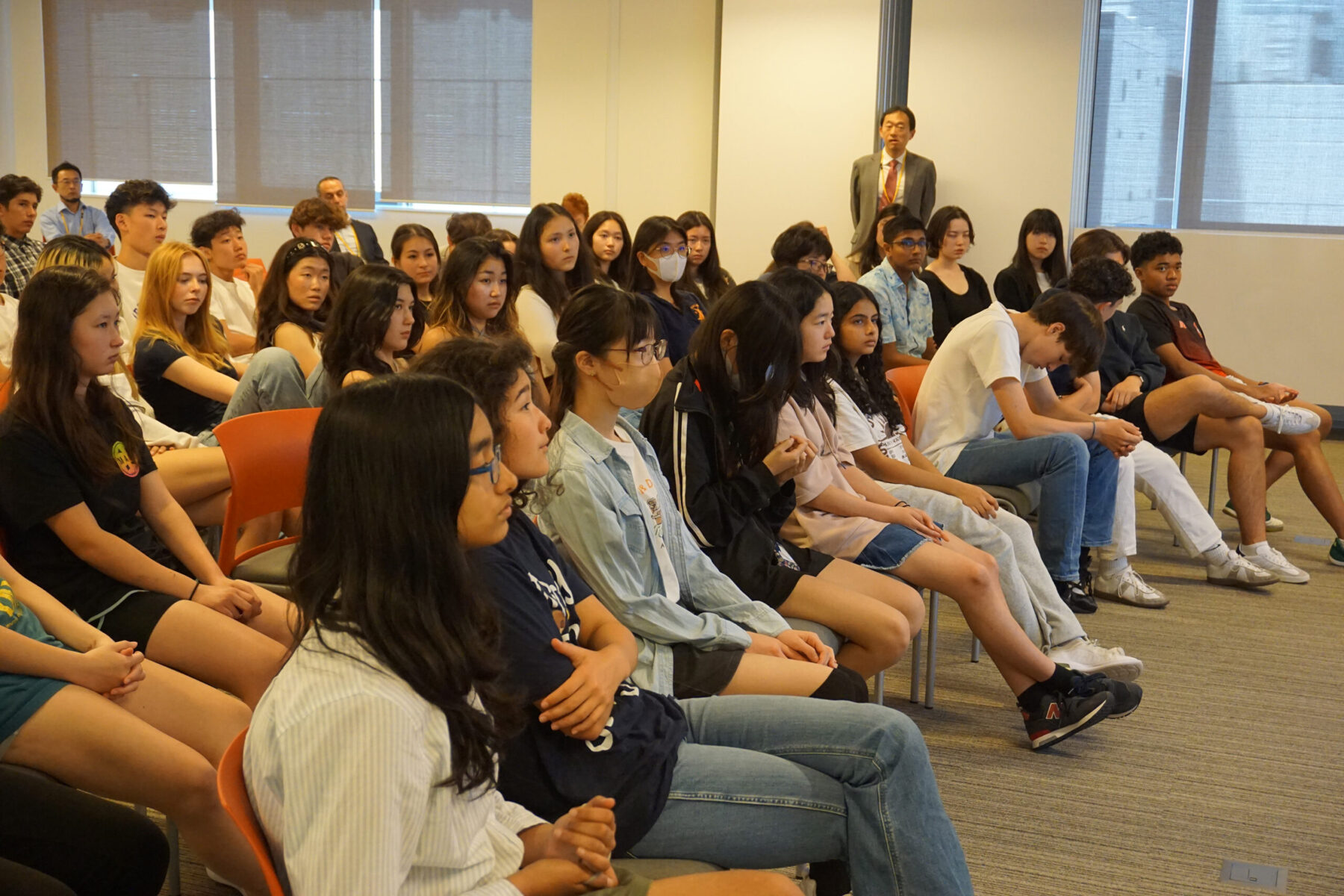
この日、テトラパック社のEijaさんによるサーキュラーエコノミーに関する講演があり、テトラパックが行っているサステナビリティへの取り組みのほか、ヨーロッパなどで進むサーキュラーエコノミーを推進する法規制などを学びました。たとえば、今年2月にEUでは消費者の「修理する権利」を認め、一つの製品をより長く使える環境整備を企業に義務付ける法案で大筋合意しました。電子機器が壊れてしまった際に、修理するよりも新しいものを購入する方が安価なケースが多く、電子機器廃棄物が世界的な問題になっていますが、消費者が修理を選択できるようなものづくりへと変わっていくことが期待されています。また、この法規制はファッション産業にも大きな影響を与え、衣類の修理を推進し雇用の拡大にもつながるのではないかと考えられています。こうした法規制は、今後ビジネスやものづくりのあり方を大きく変えていくとEijaさんは話しました。
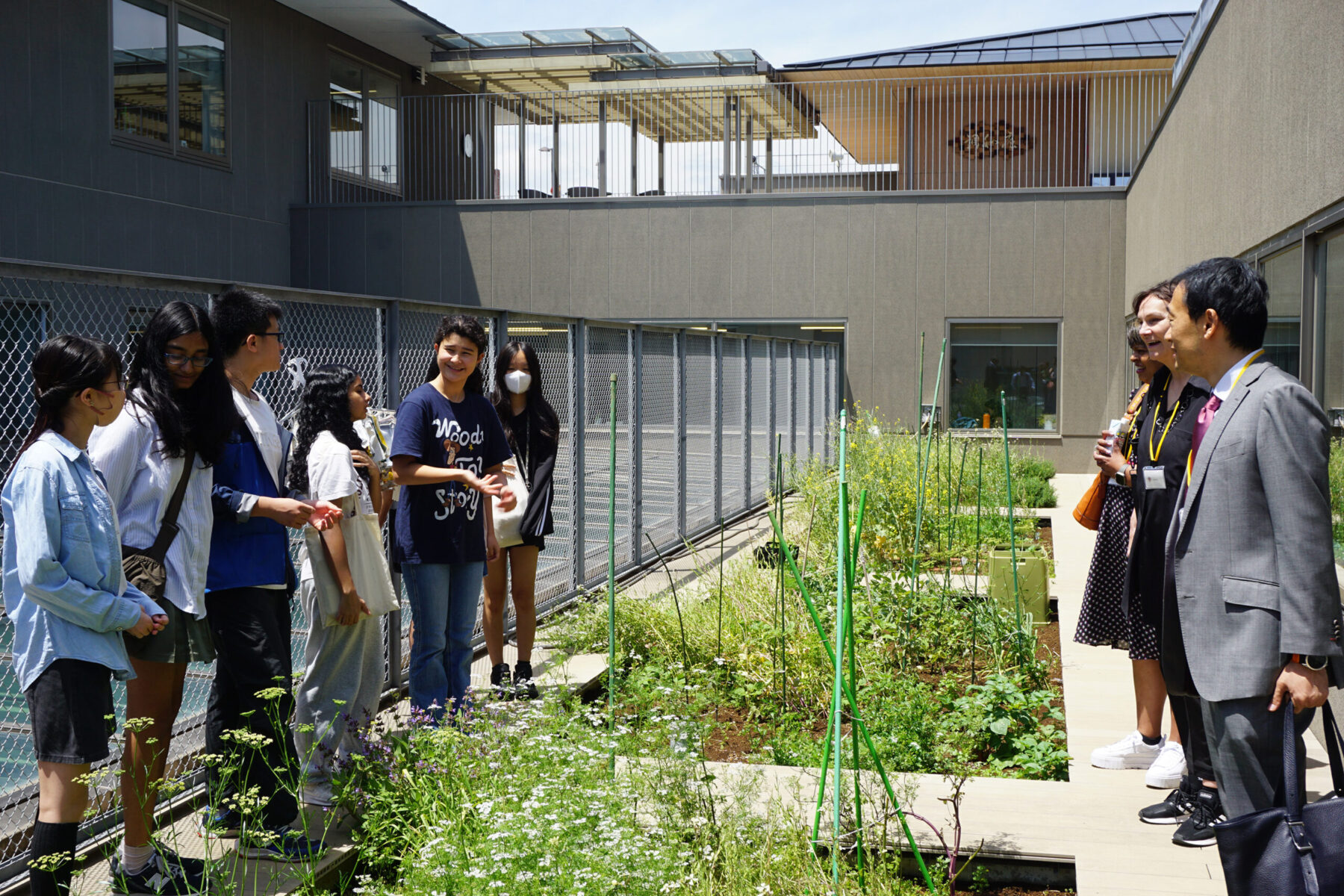
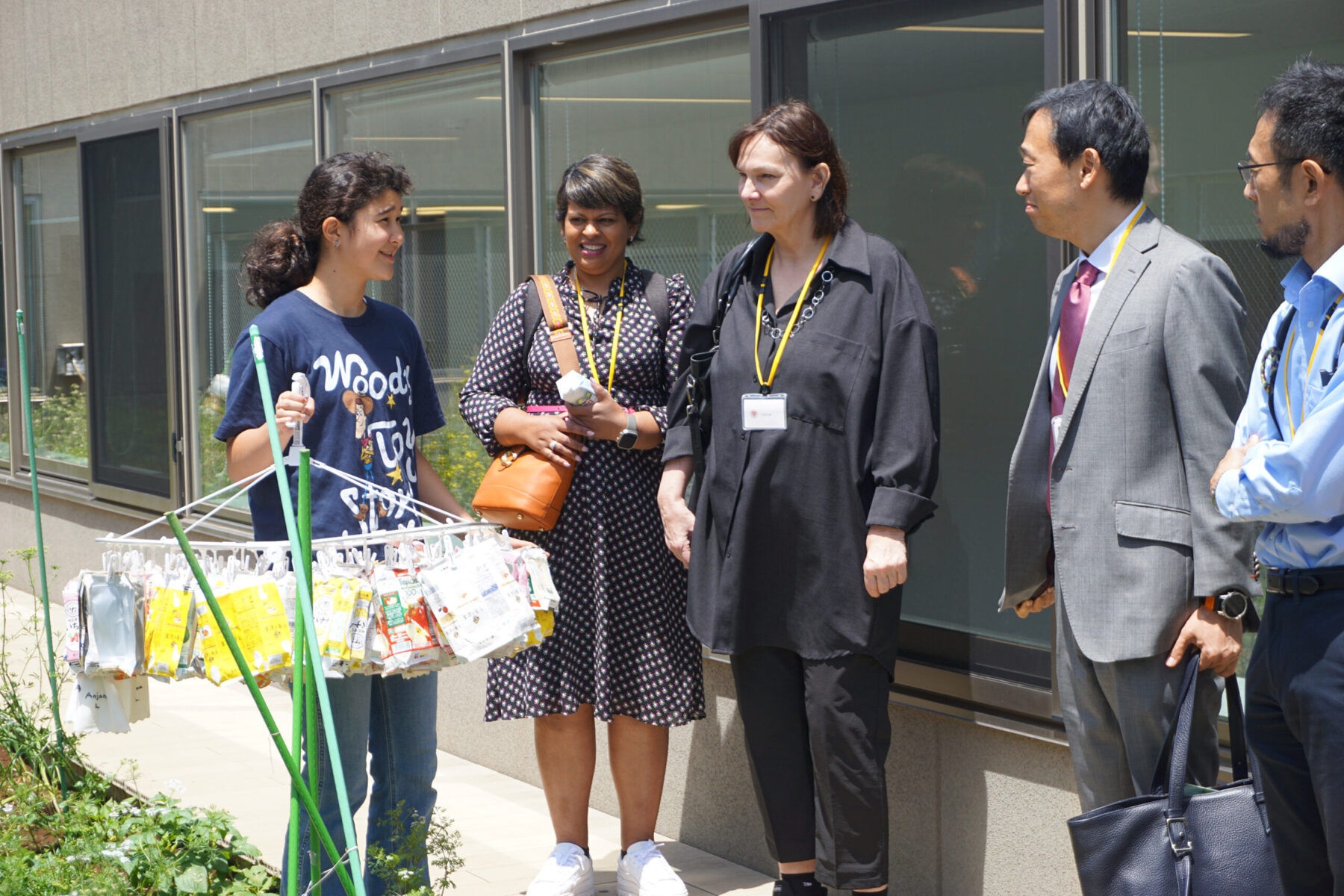
そして講演のあと、YIS Roots & Shootsのグループは校内のテトラパックの回収ポイントなどを案内しました。ちょうどお昼の時間だったこともあり、小学校低学年の子どもたちが回収ボックスに飲み物のカートンを分別して捨てていました。
YIS Roots & Shootsの取り組みに、「想像以上の活動に、ただただ感心しています。アルミ付き紙パックの回収率を上げる最善の方法を取られていて、さらにはリサイクルによって得た収益を児童養護施設のために使っていることは本当に素晴らしいと感じました」とEijaさんは話しました。
Text: Mina Oba
On May 15th, Eija Hietavuo, Global Head of Corporate Affairs of Tetra Pak and the company crew visited Yokohama International School.
Roots & Shoots YIS, have been working on recycling Tetra Pak for the past three years. Japan has advanced technologies in recycling and waste disposal infrastructure. However, there are still many issues to be solved, such as the recycling of aluminum combined paper cartons. Few of the large supermarkets collects these cartons, but municipal collection is not yet advanced in many places and in most cases they are disposed as “burnable waste” rather than being recycled. If it is recycled in the right way, paper cartons can be turned into toilet paper, paper napkins, etc. Change is needed to make effective use of resources in our daily lives.
The city of Yokohama, where Yokohama International School is located, is facing the same problem. When the students found out that the Tetra Pak juice cartons were thrown away as burnable waste in the cafeteria, they began to consider whether or not they could recycle them. After writing letters to recycling organizations and research, they found out that there was a box called Tetra Pak Bell Mark Action. They set up a special bin with Tetra Pak posters to encourage everyone to join and collect the Tetra Paks. In this way, it has naturally become a gateway for students throughout the school to participate in the action of recycling. Once a week, Roots & Shoots members open each of the Tetra Paks, wash them in the school’s vegetable garden to avoid wasting water, and dry them. Then, when the dedicated collection box is full, they send it back to Tetra Pak. They have also set up collecting bins in several other locations in the school, including the community room, so that teachers, parents can also bring in from home.
By collecting and sending in the Tetra Pak, they also accumulate Bellmark points (40 Bell Marks point per 1 kg of aluminum combined paper cartons. 1 yen per 1 Bellmark). To put these points to good use for the community, YIS Roots & Shoots visits orphanages near their school, finds out their needs, and donates the money toward the purchase of needed items.
On this day, Eija from Tetra Pak gave a lecture on the Circular Economy and Tetra Pak’s sustainability initiatives. She also shared some of the international legislation movement around circular economy. For example, in February, the EU reached a general agreement on a bill that recognizes consumers’ “right to repair” and obliges companies to create an environment where a single product can be used longer. In many cases, when an electronic device breaks down, it is cheaper to buy a new one than to refurbish, and e-waste has become a global problem. It is hoped that this will lead to a change in manufacturing that allows consumers to choose to repair their products. The legislation is also expected to have an impact in the fashion industry, promoting the repair of clothing and also increasing women employment. These laws and regulations will change the way we do business in the future, and we fully expect the Japanese government to follow suit.
After the lecture, the YIS Roots & Shoots group took the Tetra Pak members on a school tour showing how they collect. As it was just lunch time, elementary school students were throwing their cartons in the recycling bin.
“I am speechless and so impressed with the actions,” said Eija. “It is wonderful that they are also supporting the orphanages. There are still difficulties about the accessibility toward carton collection but they are doing it right and better”.
Text: Mina Oba
